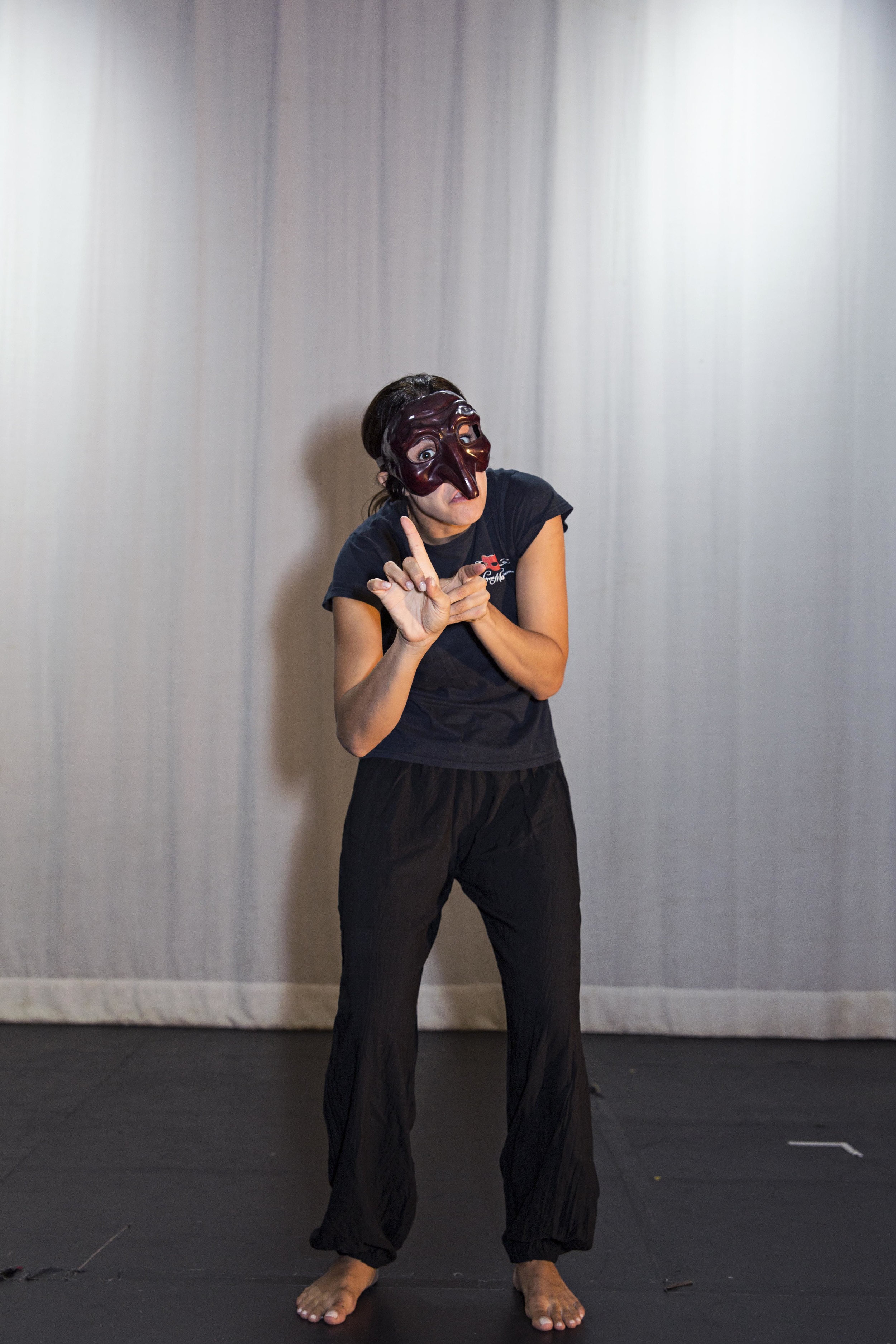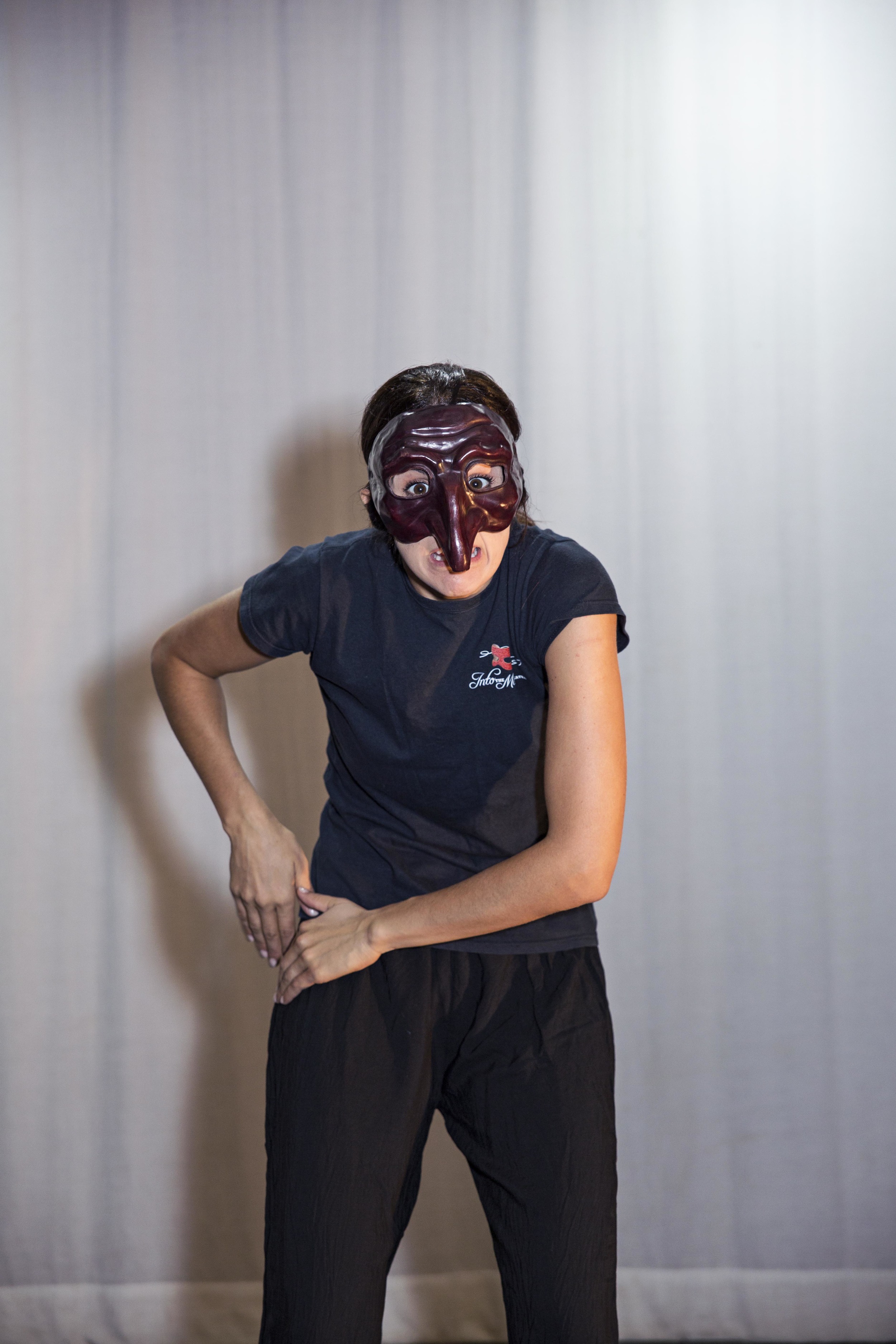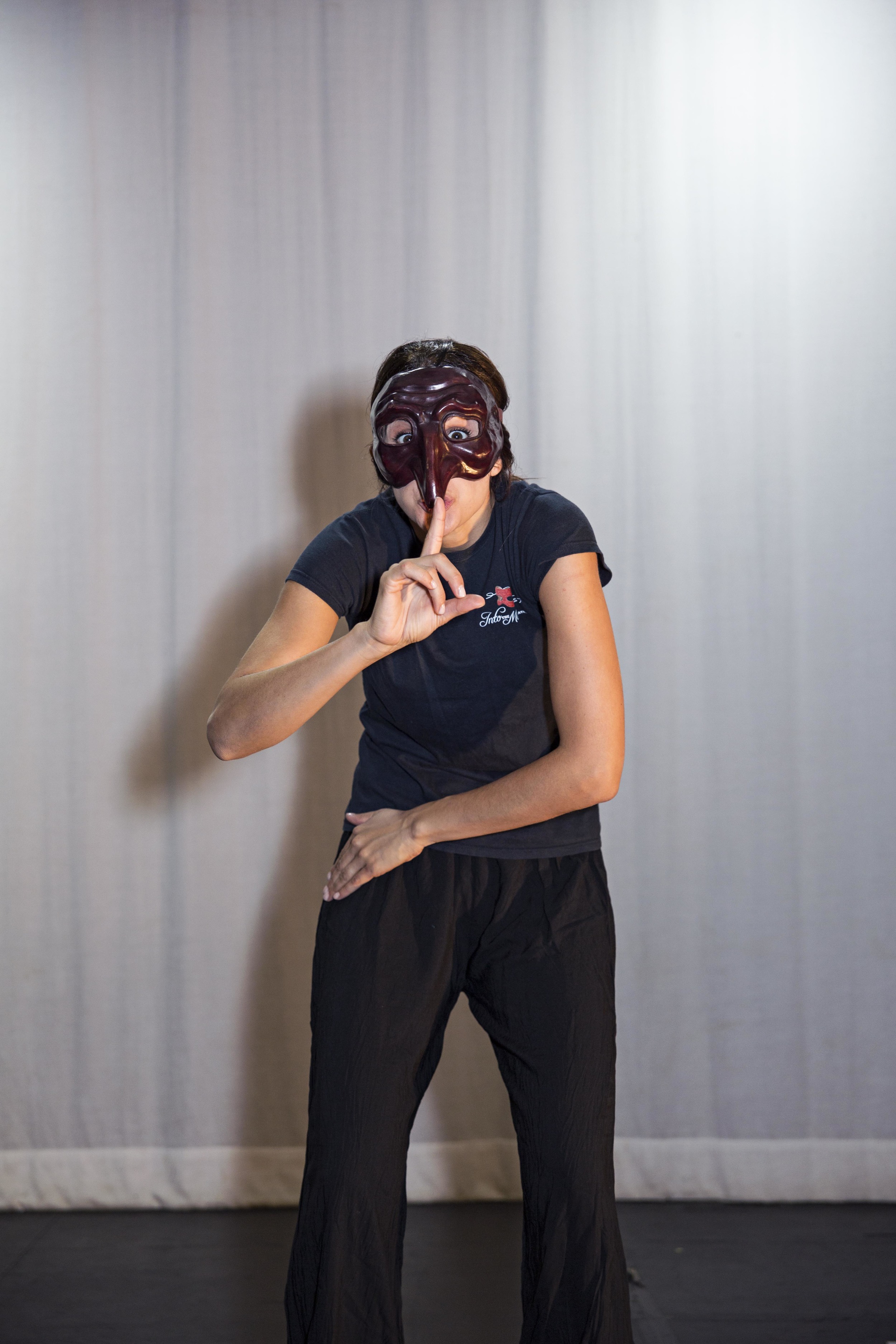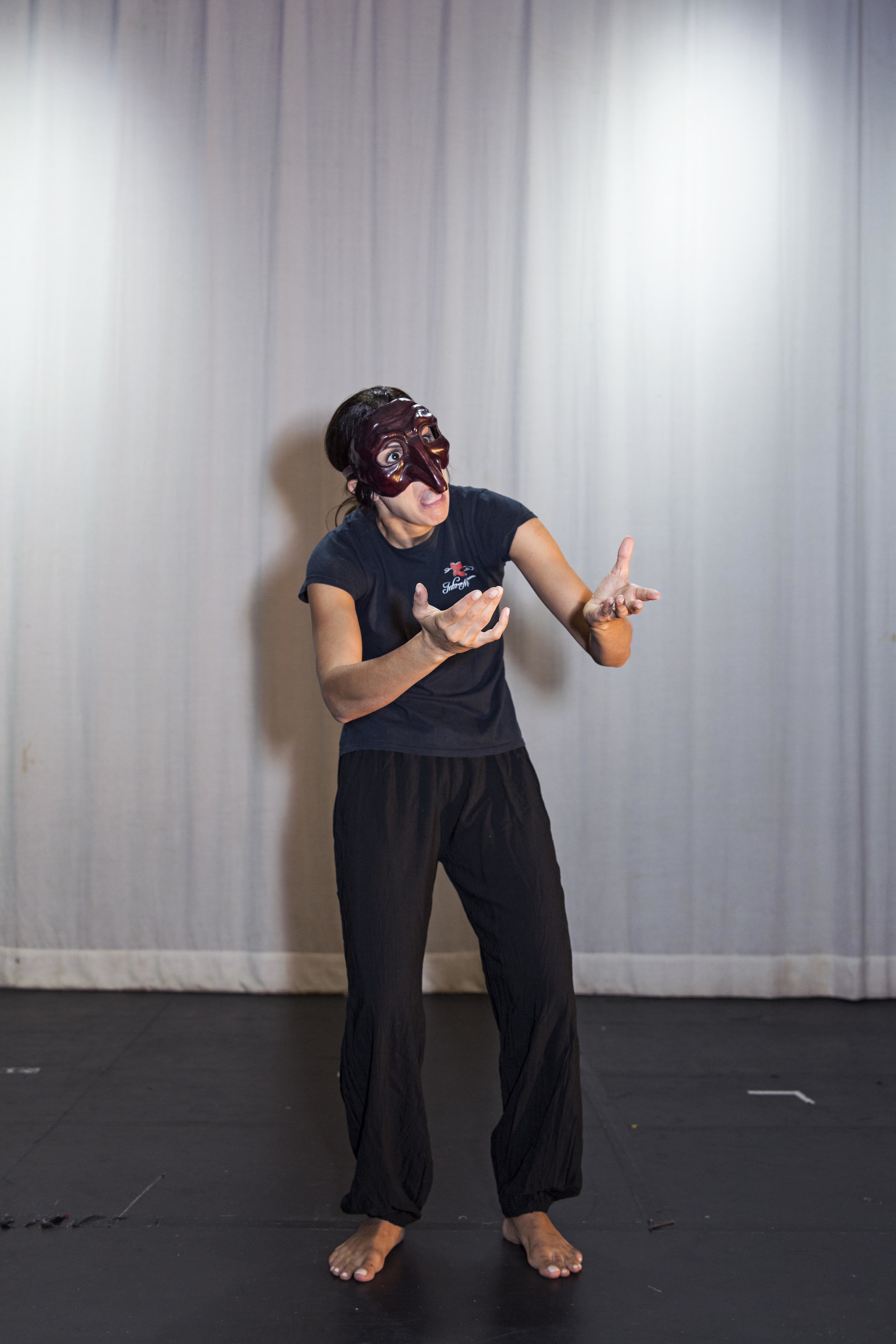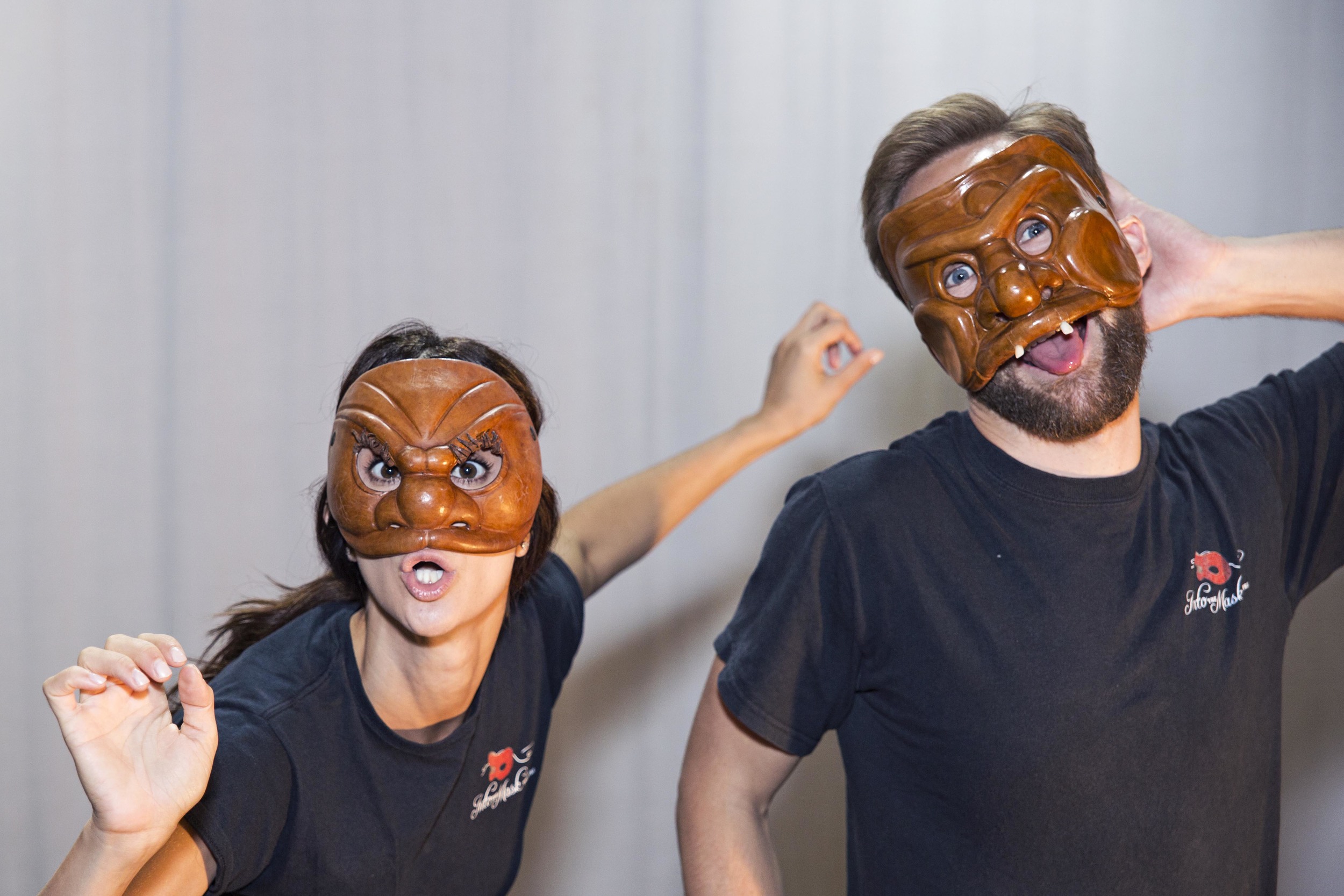Discovered in 16th Century Italy, professional actors highly skilled in acrobatics and slapstick style comedy would perform improved scenarios for the masses. The characters represented the social classes of the time whilst the exaggerated movements were for comedic effect and the masks considered aesthetically pleasing for the audience.
Our 2013 Into the Mask troupe performed ‘Una Lettera d’Amore’ for a Perth high school
THE ARCHETYPES
[THE OLD MEN · THE LOVERS · THE CAPTAIN · THE SERVANT]
The Old Men (I Vecchi)
Featured below are two most common names given to this archetype, il Dottore and Pantalone. The following information should be used as a guide and has been interpreted from the teachings of Antonio Fava and his Scuola Internazionale.
Dottore appears larger than life, full of knowledge (but with no diploma to show for it) he is high on the social rank because he has the ability to convince everyone that he is a medical professional and knows a lot of information about a lot of different things. Other than diagnosing others with made up illnesses, he is a bubbly and harmless archetype trying to help others, plus keep that food in his belly!
Pantalone can be likened to contemporary characters on television such as Mr Burns on the Simpsons, or Doctor Evil, from Austin Powers both of which have their servants by their side. Rich, greedy, a merchant and miser is how he can be described and will find all the excuses possible to either gain more money, and never ever part with his own.
The Lovers (Inamorati)
The Lovers belong to the old men. If you can consider the story of Romeo and Juliet, this family conflict is very similar (although without such a disastrous ending) The Lovers are passionate adults with child like behaviours and can be described as having their head in the clouds living in a perfect world. They are ignorant, selfish and above all very beautiful. In fact, so good looking that each of them are more focused on themselves than the other (a form of narcissism). We can use common names such as Isabella and Flavio.
The Captain (Il Capitano)
Il Capitano can be describes as a foreigner, a boaster, a braggart, a courageous coward! Born from the historical past of invaders, schemers, low life intruders finding their way through obstacles by using intimidation tactics and manipulation. Oh you've never before seen what he has seen, nor heard the tales that he will tell. Only he has fought a lion with his bear hands and lived to tell the story! (yeah right!?)
The Servant (Zanni)
Also referred to as "Zanni" a collective name used to describe the primitive servants who first appeared in commedia scenes. With an unattractive mask and scary features such as a long nose and sharp expression lines, they were recognised as the "lower class" In fact, they said that the longer or wider the nose the less educated. The Masks in the photographs below are contemporary interpretations of the masks of Zanni as there are only few drawings of the very first masks worn by troupes in the 16th Century. With no social etiquette and a very strong work ethos, Zanni serve the masters, The Old Men, The Lovers and Capitano.
Masks are leather and hand made in Italy by Antonio Fava, and Ca'Macana, Venice






